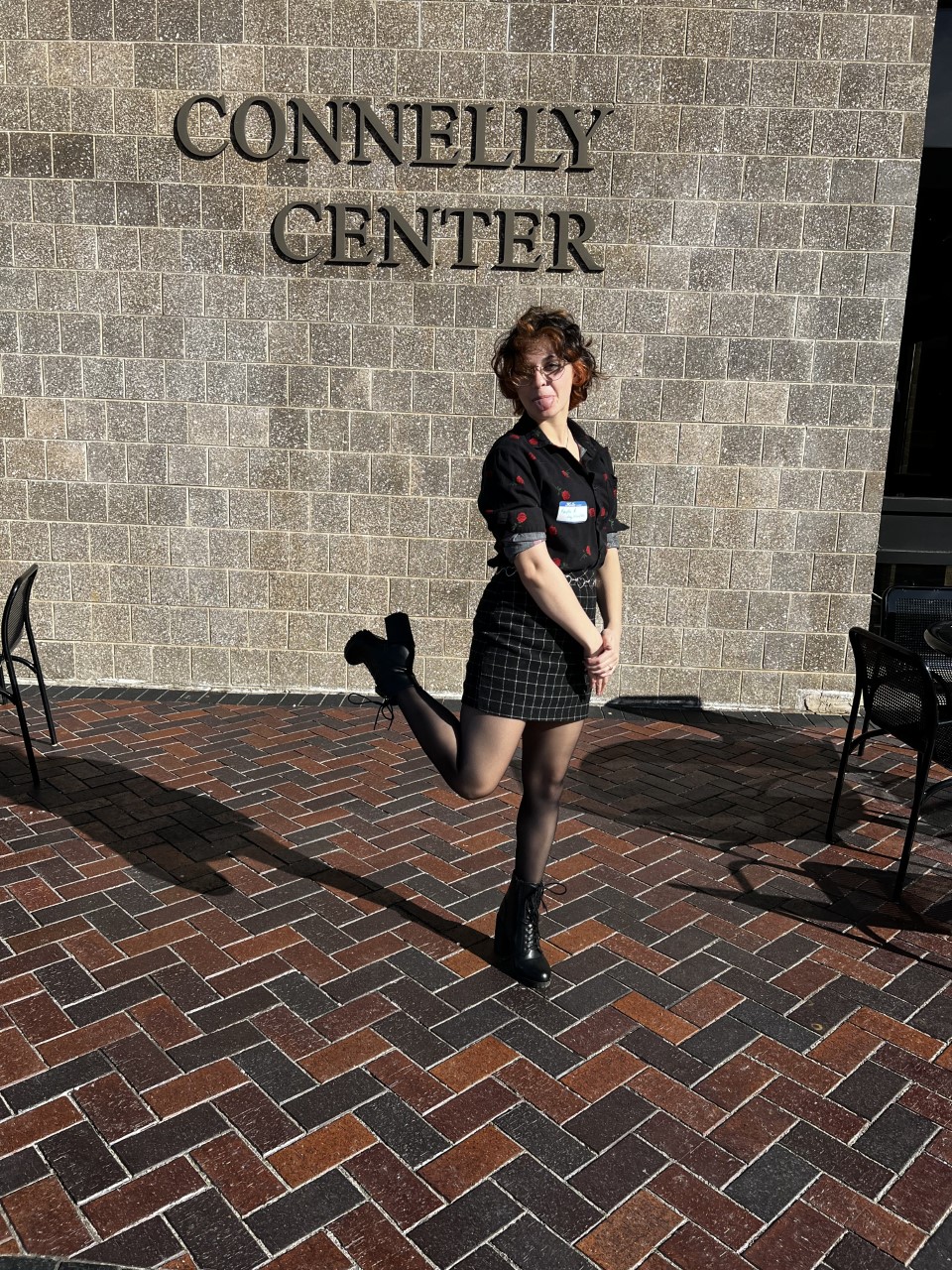Photo credits: Kayla Redfern
On Friday, Feb. 10, I had the pleasure of representing West Chester’s Women’s and Gender Studies Department at Villanova’s 33rd Annual Gender and Women’s Studies Student (GWS) Conference.
The GWS Conference, for those of you who aren’t familiar with the term, is Gender and Women’s Studies. It is the same as West Chester’s department, just with a reversed name. In December, I submitted an abstract of an essay that I wrote for my Feminist Activism class, to this conference. This essay covered topics on privilege within the transgender community, what it means to be transgender and how resources should be more accessible to those who identify under any of the terms within the transgender community.
I spoke at the “Femininity, Queerness, and Community.” panel. This was my first time as a panelist, so I did not know what to expect. The anxiety that I had was not all bad, though; it was that kind of excited anxiety that just does not go away. Driving through Villanova’s campus made me even more excited and nervous. I had no idea that I would be the only one from West Chester there. If I am being honest, I thought some other students would have been there.
It was fun meeting other students who I could relate to. When I discuss sexuality with people, it is easy for others to relate to me. But when I discuss gender identity, it goes over some people’s heads, especially when it is different identities under the transgender umbrella.
Within my panel, there were three other people who discussed three very different topics of queerness and gender expression throughout literature. It was strange when it was my turn as I did not have any pieces of classical literature to examine. All I mentioned were Michelle Dalton et. Al 2021 medical article and one of Annelise Orleck’s books. Regardless, it was still interesting when asked how “transing” is different from queering and gendering. This was my first time hearing this word, and I had to come up with a response on the spot. To me, transing is similar to queering; the action goes against cis heteronormativity as it is quite literally the act of being transgender.
After further diving into this word, though, I found that it is a word that transphobes use. In Urban Dictionary, it is stated that transing means “When one believes they are turning into another sex.” Since my essay was about transgender people, this term rang a bell in a bad way. I am not blaming the professor who asked me what transing is, since he might not have known the negative connotations behind such a word.
I am not trying to sound ungrateful, because I am not; I was delighted to attend this conference. There are just some things that caught my attention, some things that probably would have gone unnoticed for most people. Critiquing my essay through a transgender lens was one of those things. There is a lot of discourse within the trans community, and when asked about how other trans people would feel about my essay, I did not know how to answer that. Everyone has their own views and opinions; I cannot make someone agree with me just because I say that transgender and gender non-conforming people should have the same amount of accessibility to healthcare as others. I cannot make another trans person agree with me just because I say that I am genderqueer.
One thing that I did mention, though, was that if people read articles and books based on transgender people and their struggles, they cannot be naïve about it. At the conference, I talked about how people must have an understanding of these identities and struggles before they dive into something heavy or before writing an essay on trans lives. I also talked about how there is always room to grow and expand one’s knowledge about the LGBTQIA+ community, along with the identities that fall under the trans umbrella.
Being understanding is not a hard thing to do. But sadly, there are plenty of transphobes and trans-exclusionary radical feminists who would say otherwise. I know plenty of people who would rather tell me that I am wrong about both my sexuality and gender expression than support me. That is why these types of conferences are so important; we help to educate others through exposure of what we are examining, of what we have been researching.
Finding solidarity in others is just as important.
Kayla Redfern is a junior English major with a minor in Women’s and Gender Studies. kr983550@wcupa.edu


It’s been my experience transgender people don’t turn into another sex or gender. They simply are a different gender than they were assigned at Birth. I was born male but I understood very early that I wasn’t completely comfortable with the idea of being a boy. Being a girl made much more sense to my young mind
Hi Bobbi! I completely agree that trans people don’t ‘turn into another sex’. They are able to switch their gender expression, as is anyone! I only mentioned this as the term ‘transing’ was brought up during my discussion at the panel I attended, and I didn’t have any knowledge of the word’s history.